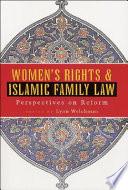Islamic Law in Theory and Practice
“The world today has become one large village. Muslims and non-Muslims live side by side and have to learn about one another, share commonalities and respect differences. At this time more than one and a half billion Muslims live in this village. Some of them are pious Muslims, trying to live in accordance with Islamic rules, whereas others do not while believing that these rules come from God (the Qur’an), from interpretations of His Messenger (the Sunnah) or the consensus of Muslim jurists (ijmâ‘), and are at least rules derived via analogy (qiyâs) from the main sources of Islam. Most Muslims think along these lines and agree with the above. The reader should remember that Muslim individuals should live according to Islamic rules in private, but no individual is responsible for implementing Islamic law. In any event, the need to learn the facts about Islamic law is necessary for Muslims as well as for non-Muslims if they live in the same society with Muslims, at least in the sense of general information. In any event, the need to learn the facts about Islamic law is necessary for Muslims as well as for non-Muslims if they live in the same society with Muslims, at least in the sense of general information. We should keep in mind here that only sovereign Muslim states/governments have the legal authority to implement Islamic law. An individual Muslim has no legal authority or power to implement Islamic law. The law of Islam certainly does not say that every Muslim is obliged to implement Islamic law. It matters not how efficient and popular that individual may be as a brave warrior or a meticulous planner of unlawful and immoral schemes of hatred, terror and destruction. Only people who are properly qualified and trained, and hold a license from Muslim governmental authorities, have the authority to issue fatwâs. Not every Muslim individual qualifies as a Muftî (a jurist-consult or scholar of law who has been given a license to issue fatwâs.). For this reason Bediuzzaman says: “And we know that the fundamental aims of the Qur’an and its essential elements are fourfold: divine unity (al-tawhîd), prophethood (al-nubuwwah), the resurrection of the dead (al-hashr), and justice (al-ʿadalah). Al-Adâlah means law. He adds in another treatise: “Let our ulul-amr (satesmen and political authorities) think over implementing these rules”. This book is divided into eight chapters. Chapter I.Because of the many misunderstandings that arise, some terms related to Islamic Law, such as Sharî‛ah, fiqh, qânûn, ‘urf, Islamic Law, and Muhammadan Law are explained. Chapter II.Here, in this chapter dedicated to references on Islamic Law, the real added value of this book is found. Chapter III. This chapter looks at four periods of Islamic Law: the period of the Prophet Muhammad, the period of the Companions, the period of the Tabi‘în, and an introduction to the period of Mujtahidîn. Chapter IV. We will provide detailed information here on the different law schools and theological divisions. Chapter V. This chapter will be devoted to a period of Islamic law that has been neglected in both old and new books and articles, i.e. the period of Islamic Law after the Turks converted to Islam (960-1926). Chapter VI. This chapter will focus also on three main subjects: Anglo-Muhammadan law (Indo-Muslim law), Syariah or Islamic Law in Southeast Asia, and Islamic Law in contemporary Muslim states like Egypt, Pakistan, Morocco, Indonesia and Jordan. Chapter VII. We will explain the system and methodology of Islamic Law in this chapter. Chapter VIII. We will give some brief information here on the implementation of Islamic Law, its future; some encyclopedical works on Islamic law, and new institutions of Islamic fiqh.”
Islamic Law in Theory and Practice Ahmed Akgunduz. 3.4 THE PERIOD OF
MUJTAHIDÎN (120‐350/738‐960) . ... 143 4 LAW ('AMALÎ) SCHOOLS AND
THEOLOGICAL SCHOOLS (IʿTIQÂDÎ) IN ISLAM (MADHHABS) .










